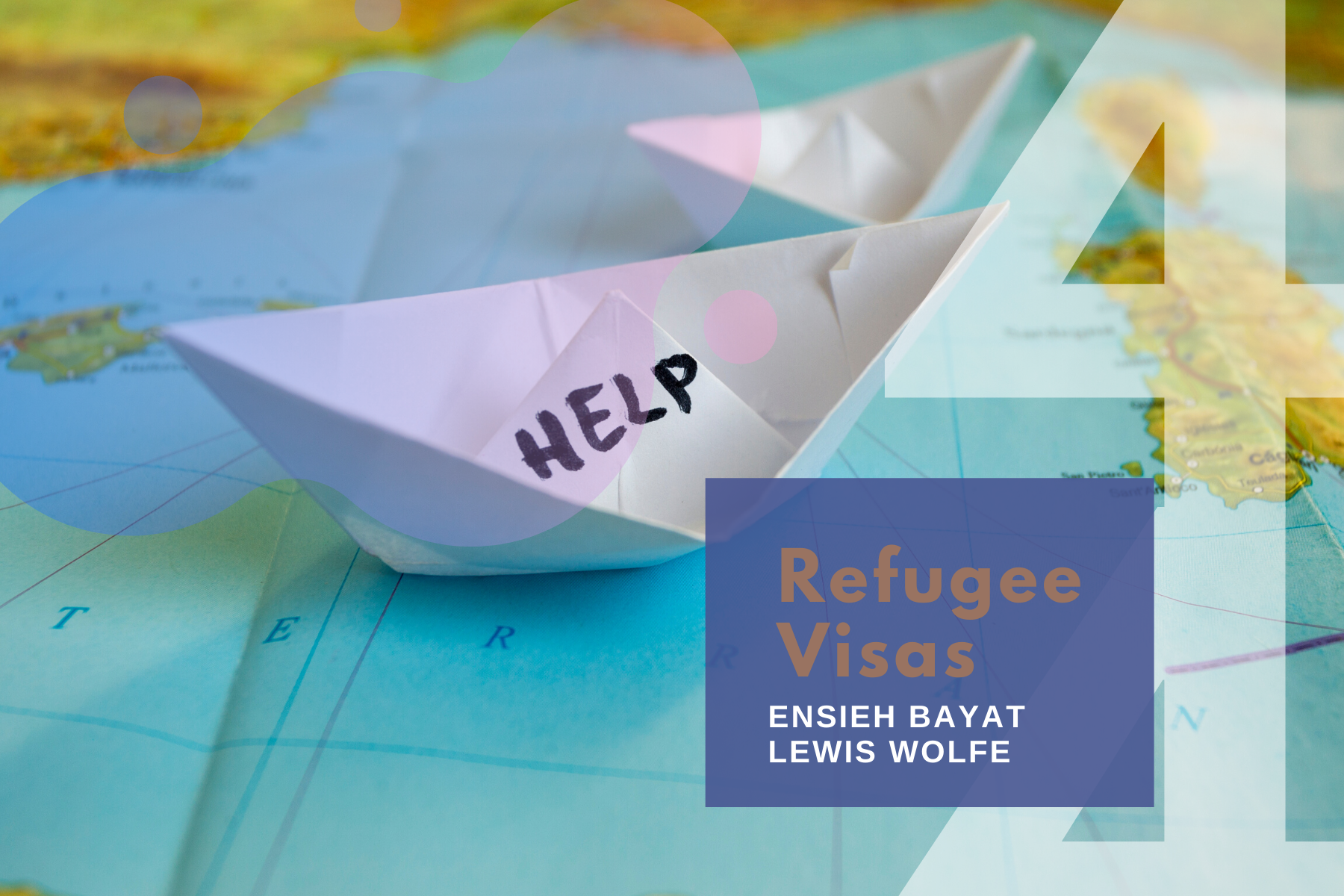Immigration Law
No matter what stage you are in life, opportunities present themselves. Often, they will be opportunities worth chasing. At Forty Four Degrees, we understand the complexities and challenges of immigration law and the decision to immigrate to a new country. We also recognise the importance of visa outcomes and their significance to our clients’ futures.
Combining experience and expertise, we’re here to make your life easier and help guide you through the ever-changing nature of immigration laws so that you can achieve your ambitions. Our clients are our main priority. With a dedicated team of lawyers who are devoted to delivering quality services around the clock, let us place the odds back in your favour.
The complexity of immigration
Australia’s immigration laws are highly complex, rule based and regulated. Its legislative schemes are constantly modified to not only protect Australian citizens, but also combat ongoing demand for temporary and permanent entries. With over 3000 pages of legislation and over 20,000 pages policy guidelines, immigration law is a highly specialised area of law.
Forty Four Degrees is MARA registered. This means that our immigration lawyers are certified to practice migration law and carry out migration work, such as the processing of visa applications. We are well-positioned to provide you with accurate and practical information regarding immigration.
We are more than just migration agents. As lawyers we encompass the advantage of being able to practice in various areas of law and keep up to date with legal changes and regulations. This enables us to provide our clients with a holistic legal experience, ranging from advising on migration matters to addressing potential legal issues down the line.
As humans, we believe in second chances. With our expertise in criminal law, we can also assist with visa issues arising from previous criminal offences.
Our Services
Visa application assistance
At Forty Four Degrees, we are always ready to assist you with your needs. We offer bespoke services for both individual and corporate clients for:
Student Visas (subclass 500 and 590)
Family Visas (subclass 103, 143, 804 and 870)
Prospect Marriage (subclass 300)
Partner Visas – onshore (subclasses 820 801)
Partner Visas – offshore (subclasses 309 100)
Adoption Migration (subclass 102)
Temporary Graduate Visas (subclasses 485, 189 and 186)
We can assist with your visa application in the following ways:
Providing advice and assisting with the preparation of the visa application.
Assist with the relevant documentation for your visa sponsorship.
Preparing and representing you for proceedings in front of a court or a merits review tribunal.
Assist with the drafting of a request to the Minister to exercise certain powers under the Migration Act, should the situation arise.
Notices of intention to cancel or refuse visas
Beyond assisting you with migration strategies and providing specialist advice on all aspects of migration, we’ve also here to tackle complex matters.
The Department of Home Affairs (DHA) may send you a Notice of Intention to Consider Cancellation. Some common reasons for visa cancellation include refusal for bad character or providing false visa application information. The DHA will give you 28-day period during which to provide your response.
If you have received a notice of intention to cancel or refuse your visa from the DHA, it is important to seek immigration advice straight away. Contact us for a consultation where we will take our time to understand your circumstances and prepare a response addressing why your visa should not be cancelled.
Migration review tribunals
The Department of Home Affairs (DHA) has the power to refuse or cancel your visa application. In the case that your visa is refused, you may be eligible to appeal the decision by seeking a merits review through the Administrative Appeal Tribunals (AAT). If eligible, a re-assessment of your application will be conducted by a member of the tribunal. Whilst the AAT cannot grant you a visa, they are able to influence the DHA to re-make the decision and reach a new verdict regarding your visa application.
Our lawyers are able to advise you on your legal options, such as assessing the decisions from the DHA and providing assistance with appealing those decisions to the AAT. We will do everything in our power to ensure your best possible outcome.
Updates in Immigration Law

By Ensieh Bayat and Lewis Wolfe
•
12 Jun, 2020
There are essentially two pathways to go down when applying for a visa on the basis that you are suffering substantial persecution or discrimination in your home country, assuming that you are applying from outside Australia. Refugee Class (Offshore) Pathway The first pathway is with a refugee class visa, with four different subclasses centered around the hurdle of obtaining a referral from the United Nations High Commissioner for Refugees (UNHCR) to have a practical chance of a successful visa outcome. This includes subclasses 200, 201, 203 and 204, which are summarised as follows: Refugee (subclass 200) You are living outside your home country You are subject to persecution in your home country You are in need of resettlement Note: The UNHCR provides advice to the Australian Government on the need for resettlement In-country Special Humanitarian (subclass 201) You are in your home country You are subject to persecution Note: Only a small number of places are available under this subclass Emergency Rescue (subclass 203) You are subject to persecution in your home country There are urgent and compelling reasons for you to be resettled in Australia Note: Requests for urgent assistance under this subclass are usually made on your behalf by the UNHCR Woman at Risk (subclass 204) You are a woman living outside your home country Subject to persecution in your home country or are registered with the UNHCR as being ‘of concern’ Without the protection of a male relative In danger of victimisation, harassment, or serious abuse because you are female The benefits of these subclasses are that a successful applicant will be allowed to stay in Australia permanently, work and study in Australia, and propose other family members for permanent residency. Furthermore, there is no cost to apply and the Australian government will cover travel costs for a successful applicant. The largest issue with this stream of visas is that the number of applications received each year greatly exceeds the number of allocated resettlement places, leading to only those in the most compelling circumstances being accepted. It appears that the Australian government will mainly take into consideration referrals and advice given by the UNHCR, which adds another layer of complexity to successfully applying for these visa subclasses. Global Special Humanitarian Visa Pathway This pathway differs in comparison to the above as there is no hurdle of a UNHCR recommendation to meet. Instead, the applicant must be proposed by a person or organisation within Australia. The number of applications to this Special Humanitarian Program (SHP), like the above visas, exceeds the number of available places each year, however the priority process differs. Priority is given to applicants based on the position of the proposer. A summary of the priority groups is as follows, with priority level 1 generally having the highest chance of success: Your proposer is: an immediate family member (partner, dependent child or, if the proposer is not 18 or more years of age, the proposer's parent) who was granted a Class XB visa; or a relative (partner, child, parent, sibling, grandparent, grandchild, aunt, uncle, niece, nephew or cousin) who resides in a regional location and does not hold a Protection (XA-866) or Resolution of Status (CD-851) visa. Regional Australia is anywhere outside of Sydney, Melbourne and Brisbane. Your proposer is a close family member (partner, child, parent or sibling who does not meet the split-family eligibility criteria) and does not hold a Protection or Resolution of Status visa. Your proposer is an extended family member (grandparent, grandchild, cousin, aunt, uncle, niece or nephew) and does not hold a Protection or Resolution of Status visa. Your proposer is a friend or distant relative and does not hold a Protection or Resolution of Status visa, or is a community organisation. Your proposer holds a Protection or Resolution of Status visa. Your proposer was an illegal maritime arrival before 13 August 2012. The proposer may have to pay for the applicant’s travel to Australia if they are unable to, however otherwise the rights given to a successful applicant are the same as those successful under the Refugee class visas. If you need further information on obtaining a visa for someone who you think may be eligible for one of these visas, or are seeking a different visa, Forty Four Degrees Legal has an accredited Migration Lawyer and may be able to assist. Contact Ensieh Bayat at [email protected].
Contact Us
We’re an Australian Law Firm promoting a nuanced, personal touch. We have the skills you need to resolve your case quickly and with a positive outcome. Our straight talking team stays close to simplify what is most often a complicated process. We help individuals and businesses with technology and startup law, property law including conveyancing and leasing, commercial law, civil litigation, wills, estates, bankruptcy, insolvency, criminal law, and professionals facing investigations and charges from their regulatory body.
We have a connected network of talented lawyers in Melbourne CBD, Dandenong, Ballarat, and Ivanhoe East.
Fill out the form or call us on 1300 892 237.
Thank you for contacting us.
We will get back to you as soon as possible
We will get back to you as soon as possible
Oops, there was an error sending your message.
Please try again later or call us on 1300 892 237.
About Us
We do business your way.
203/ 50 Market St, Melbourne VIC 3000
50 Lydiard St South
Ballarat Central VIC 3350


